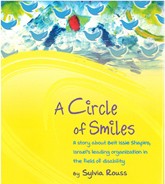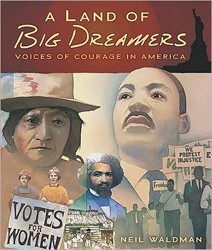In this story set in 1942, a young Jewish boy, Sam, watches passively while Keiko, a Japanese American friend from school is first shunned and later sent off with her family to an internment camp “somewhere in the desert.” Sam, whose discomfort feels real enough to make the reader squirm, knows that Keiko and her family are not spies but has trouble articulating what he knows to be true — especially when his friends assure him that talking to Keiko means being disloyal to his brother fighting overseas. Sam knows his friends are wrong, yet passively follows their lead.
Sam’s parents invite Keiko’s family to dinner but they are unable to attend. They’ve been notified that they must pack whatever belongings they can; they are being moved to an internment camp immediately. Sam’s family discusses this around the Shabbat table, a table generally decorated with flowers but empty on this night since the florist shop, run by Keiko’s father, has been destroyed.
With the wisdom of his parents’ Shabbat discussion still echoing in Sam’s ears, he sends a letter to Keiko along with a a scarf he hasknit for her, for warmth during the cold desert nights. He adds a wish for her safe return. He sees that Keiko has left him something as well, a pair of warm socks that she knit for his brother, to keep him warm while he is away fighting for their country. The socks are accompanied by a note with a wish for Sam’s brother’s safe return home.
The simple illustrations echo the book’s straightforward themes: loyalty, caring and non-discrimination. An author’s note at the end provides historical background and is accompanied by photos from the era. This book is a perfect jumping-off point for discussion at home or in school.
Michal Hoschander Malen is the editor of Jewish Book Council’s young adult and children’s book reviews. A former librarian, she has lectured on topics relating to literacy, run book clubs, and loves to read aloud to her grandchildren.





